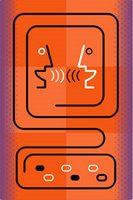 The following is a guest post by John Garruto, school psychologist with the Oswego School District and member of the IQs Corner Virtual Community of Scholars. John reviewed the following article and has provided his comments below.
The following is a guest post by John Garruto, school psychologist with the Oswego School District and member of the IQs Corner Virtual Community of Scholars. John reviewed the following article and has provided his comments below.- Bong, M. (1996). Problems in Academic Motivation Research and Advantages and Disadvantages of Their Solutions. Contemporary Educational Psychology, 21, 149-165. (click here to view)
I (John Garruto) was reading about a new instrument recently crafted on student motivation called the School Motivation and Learning Strategies Inventory (SMALSI) by Kathy Stroud and Cecil Reynolds. I remember thinking to myself, “How likely is it to encapsulate motivation by rating scales?” Bong (1996) addressed many of the same concerns on academic motivation:
- In this article, she elaborates on the issue of motivation being loosely viewed as a single construct conundrum in education. Bong does a nice job of discussing the various theories present with regard to academic motivation, identifying some of the limitations with respect to empirical basis (as well as the highly varying, yet all very plausible schools of thought on the issue.) For example, she discusses is motivation a problem from an internal point of view (such as in the case of attribution theory) or one that is somewhat influenced by environmental variables? Giving a variety of solutions, she suggests using path analysis and structural equation modeling (with more creedence to the latter) as a way to determine how multiple variables can be influential to outcomes. Such principles can be useful as we know from CHC theory where certain cognitive constructs influence (to varying degrees) academic outcomes. Empirical research is a worthwhile pursuit in the education arena, which seems often dominated by intuitive theories.
- What seemed to be missing from the article is the focus on importance from the idiographic point of view. The world of each student is different and as school psychologists, we need to understand the student’s intrapersonal and interpersonal dynamics to really hypothesize what is at play. Such a statistical endeavor again is highly wortwhile, but one would do well to remember Kevin McGrew’s mantra of “we are the instrument.”
- One other concern I noted was with the operationalization of motivation. I see motivation as the driving force to push us forward to achieve a goal. Much of what the article discussed seemed to be academic facilitators and inhibitors (factors that can increase or decrease our propensity toward goal attainment). Some similarities, but not quite apples to apples. Certainly combining what was noted in Bong’s proposed framework with our personal knowledge of the student would likely be a well-served endeavor to truly measure (and intervene) on the issue of motivation.
- In this article, problems in current academic motivation research and their solutions are discussed. From a theoretical standpoint, it is argued that the field suffers from a lack of comprehensive models that are capable of capturing the full dynamics underlying observed behaviors. Different theoretical orientations among researchers often result in a rather arbitrary inclusion or exclusion of variables which leads to the misspecification of models. A lack of discriminant validity among motivational constructs exacerbates the problem. Furthermore, the issue of motivational influences on specific phases of information-processing and their interaction with different types of knowledge has largely been neglected. From a measurement perspective, heavy reliance on self-reporting questionnaires is once again criticized. It is argued that such practice overlooks motivational fluctuation both over time and across domains, assuming a greater degree of generalization of academic motivation without empirical support. Several solutions are suggested for each problem and their advantages and disadvantages are considered.

No comments:
Post a Comment
Note: Only a member of this blog may post a comment.